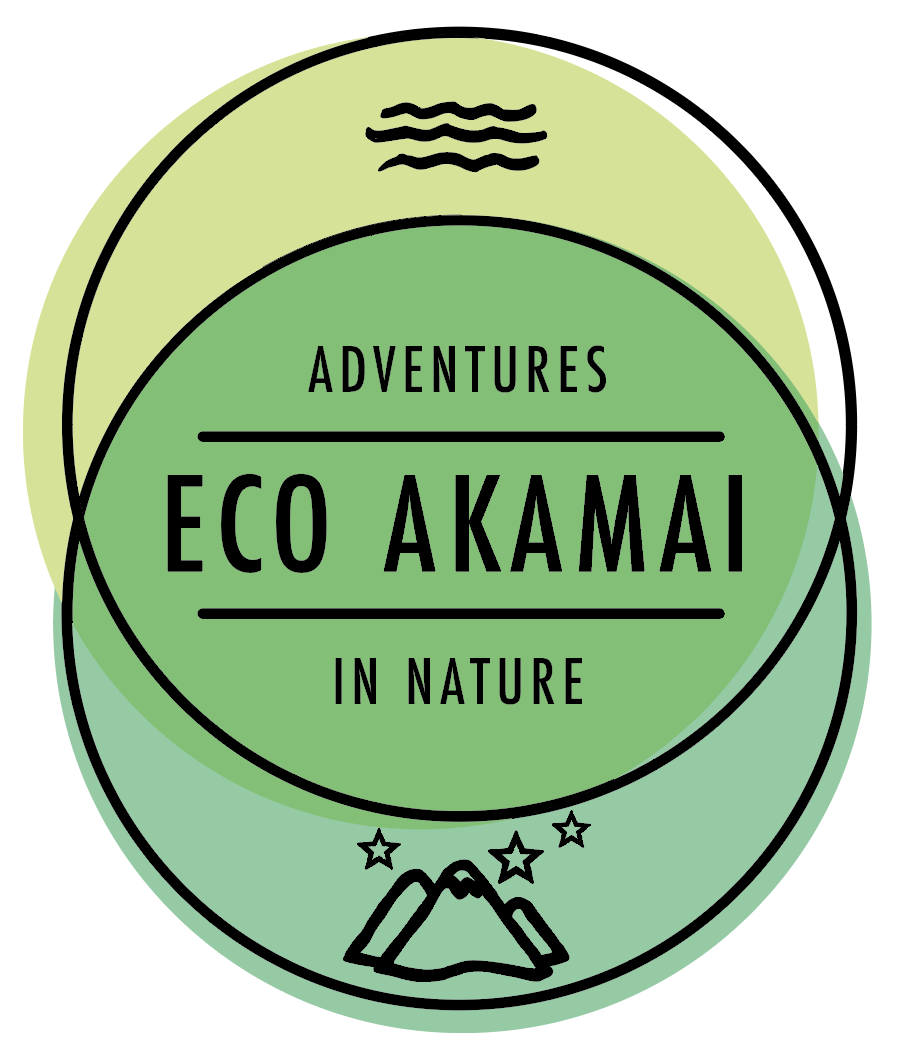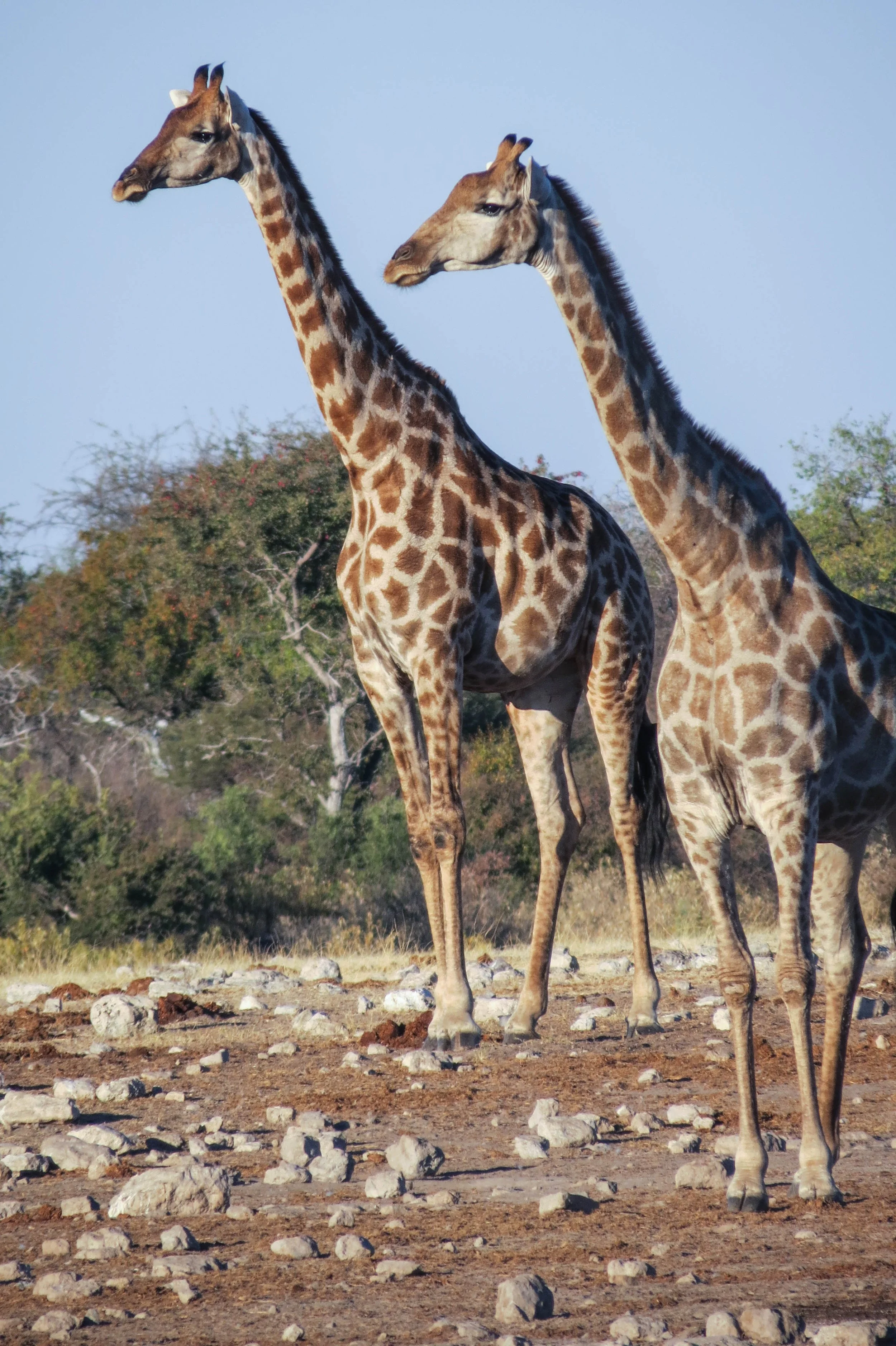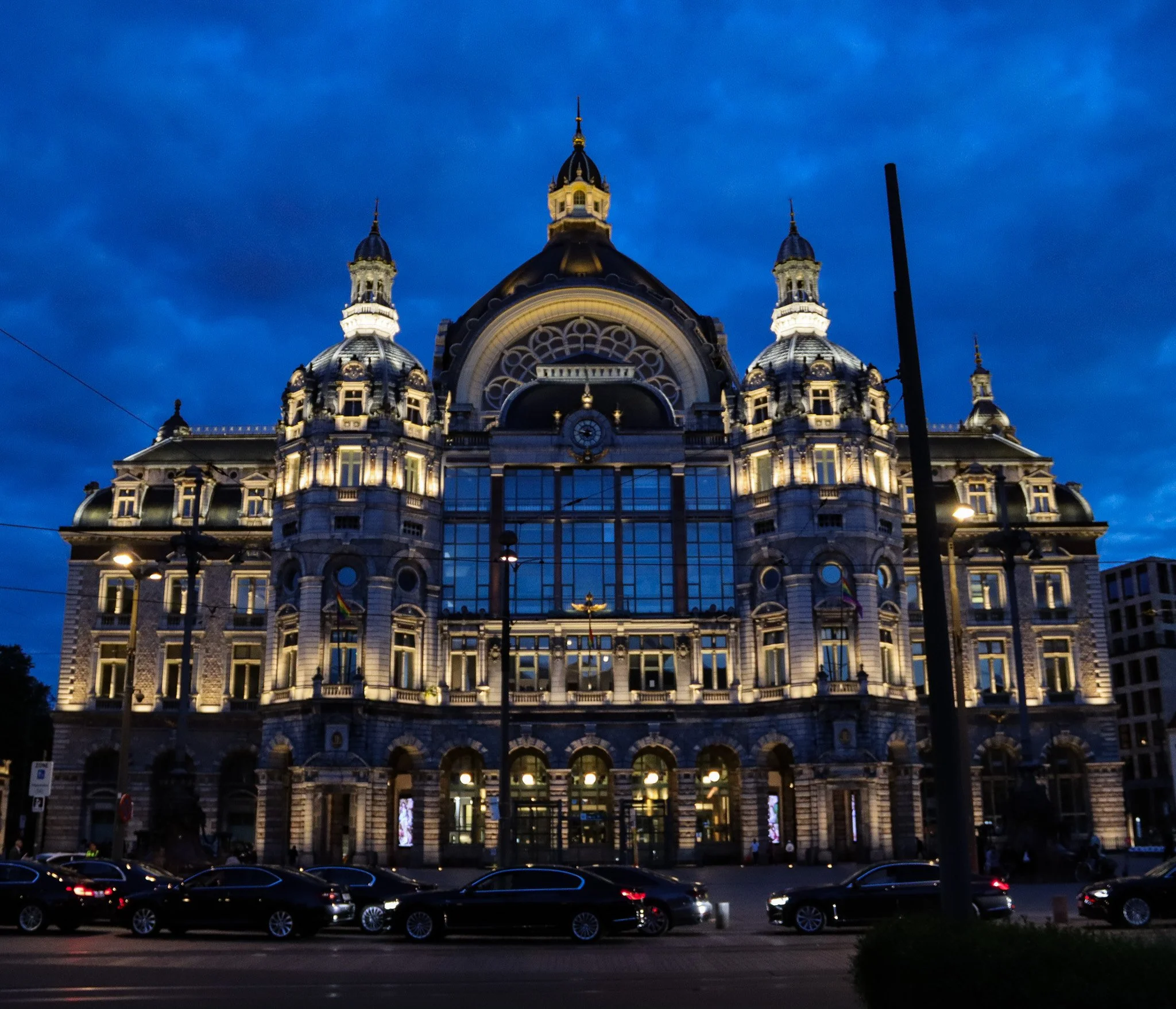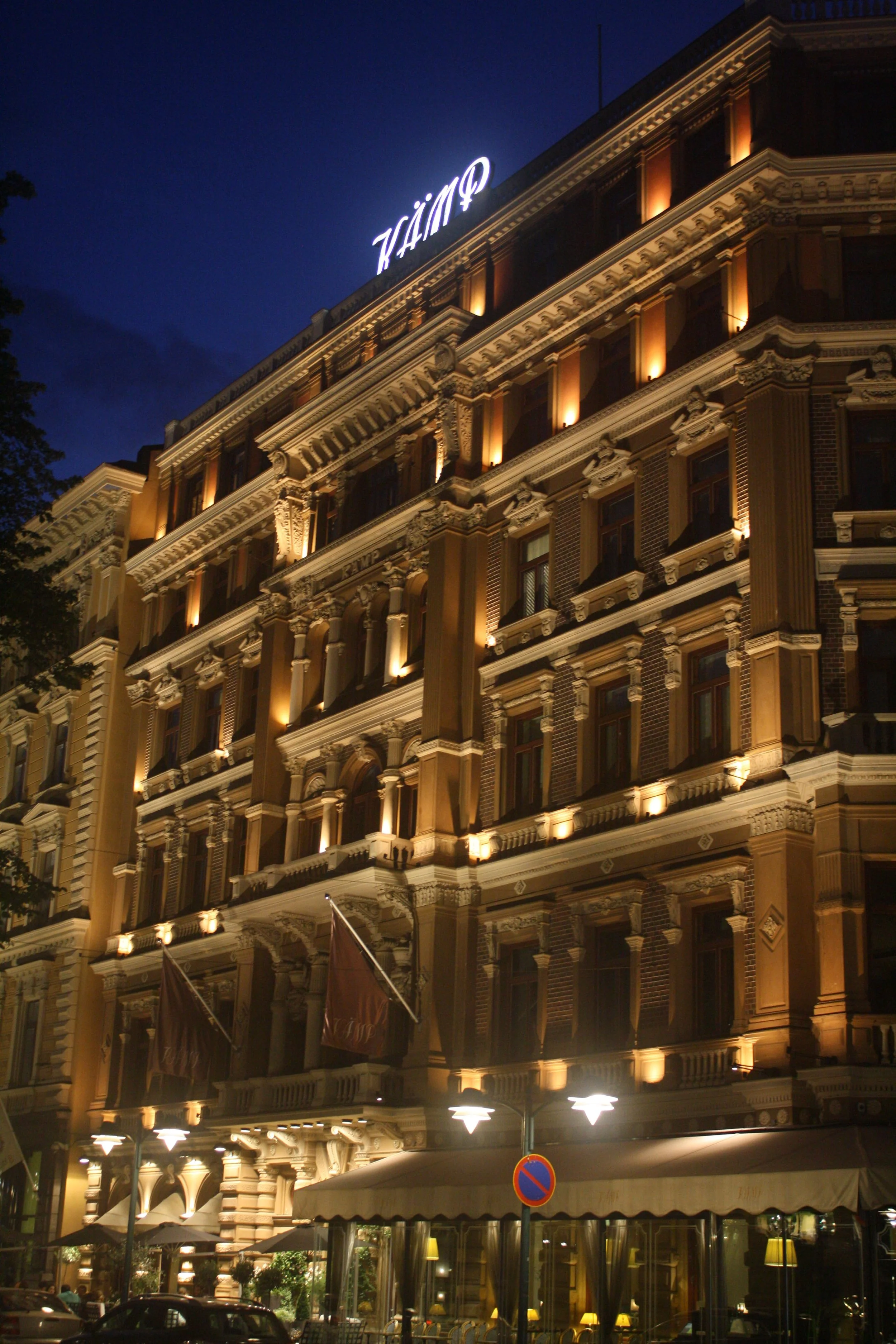Get Inspired: By Stephen Travels
Iguazú National Park in Argentina
I am excited for you to meet Stephen, the curious explorer behind Stephen Travels, a vibrant travel blog dedicated to discovering the world one story at a time. With a passion for immersive experiences, Stephen shares captivating tales from the most fascinating corners of the globe—whether it's a hidden village in the mountains, a bustling city market, or a serene coastal escape. His blog is more than just a guide; it's a personal journey through culture, cuisine, and unforgettable adventures. From the best local restaurants to must-see landmarks and off-the-beaten-path gems, Stephen offers honest insights and tips that inspire readers to pack their bags and experience the world with fresh eyes.
Giraffes in Etosha National Park in Namibia
As a New York City native, I was exposed to pretty much the whole world right in my own neighborhood—Greek neighbors, Irish and Puerto Rican classmates, a synagogue down the block, Italian bakeries and a Russian grocery store a short walk away. But it was leaving the city and actually seeing the whole world that really thrilled me. I’ve been fortunate enough to have visited 48 U.S. states and 43 countries so far. Traveling enables me to indulge in my passions—food, architecture, history, nature—in different locales that make every place unique. I launched my blog, stephentravels.com, in 2013 not only as an outlet for my writing, but also to share my travel experiences with others and to inspire those who haven’t started to explore yet. My blog introduces visitors to some of the world’s best indoor and outdoor activities, restaurants, and hotels, and a “Top 5” category serves as a great catchall for everything else. I invite everyone to check it out so you can hit the road already!
Queen Astrid Square in Antwerp, Belgium
Please follow Stephen on social media at
His Blog, Stephen Travels, Facebook, Bluesky, X, and Pinterest
Enjoy his interview!
Stagecoach in Sedona, Arizona
What was the moment or experience that made you fall in love with travel?
When I was still in my single digits, I had an aunt and uncle who owned a summer home about 90 minutes north of where I lived, in Brooklyn, New York. Maybe once a summer, we’d go up for the weekend. Packing that luggage, driving on different roads, sleeping somewhere else, and waking up to new sounds and smells (my aunt’s pancakes were legendary)—it was all terribly exciting. That was the seed of my travel passion.
If someone gave you a one-way ticket anywhere in the world right now, where would you go and why?
A free one-way ticket? Australia, here I come! That’s a tremendously long and expensive flight from New York, and I’d need a good month there, with no return ticket, to at least scratch the surface.
What’s a destination you think is completely underrated and deserves more love?
I’ve been to more than a few places that have prompted my friends and family to ask, “Why?” Well, why not? So I’d have to say Malta. It’s not completely unknown, but I also don’t know of anyone else who has been there. It has terrific history, great architecture, nearly perfect climate, fun festivals, striking beaches, and some of the best food I’ve ever had. But one shouldn’t underestimate the so-called flyover states in the United States. I’ve had excellent experiences in Nebraska, for instance, and South Dakota—places that are very often overlooked or, worse, looked down upon.
Can you describe a travel moment that completely changed your perspective on life?
I wouldn’t say it changed my perspective—I’ve always been conscious of life’s brevity and capriciousness—but visiting Auschwitz and Birkenau concentration camps in Poland was a good reminder to appreciate what you have and never take anything for granted, because it can disappear in a heartbeat. And my first trip abroad, to Italy when I was 17, shifted my perspective on age: Everything around me in my real life that I had thought was old was now, by comparison, astoundingly new.
What’s the most unexpected place you’ve ever fallen in love with, and why?
Easily Namibia. I first became conscious of its existence as a teenager, when I learned about its famous ghost town, Kolmanskop. It utterly intrigued me—an entire fairly well-off city completely abandoned and being reclaimed by desert sands. Finally, for a milestone birthday, I headed to Namibia for two weeks. Not only did that ghost town deliver on all my expectations, but so many other facets surpassed them—the outstanding friendliness and helpfulness of the people, the mouth-watering food, an island penguin colony that I knew nothing about previously, the utter silence when I stayed at desert camps in the middle of nowhere, the millions of stars in unpolluted skies, and, of course, all those wonderful wild animals. You don’t need to go to Etosha National Park to see them (although that superior park is the best place to do it!); I spotted hyenas, flamingos, feral horses, and gorgeous birds just hanging out along the side of the road. I was completely besotted with Namibia.
Have you ever had a “what am I doing here?” moment on a trip? How did it turn out?
Ruins have always appealed to me—what was there, what happened there, what caused it to fall into ruins? When I was walking around the ruins of the automotive factories in Detroit, I really did think, “What am I doing here?” I was completely alone; not even a single car drove by. It felt unsafe. It felt weird. It felt sad. Yet, it was also fascinating to see how what had been an American powerhouse was now nothing but abandoned, rusting, rotting shells. It was a mini history/sociology/architecture lesson all wrapped up in one setting. And it turned out just fine!
What’s the most unforgettable food experience you’ve had while traveling?
Oh, that’s a tough question. I’ve had lots of different ethnic cuisines, in lots of different settings, from an outdoor Namibian dinner on a hillside dotted with lanterns to a barbecue around a campfire on an island in northern Finland at 1 a.m. when it was still light out. Overall, however, dining in very–small-town Italy, where little English is spoken and tourists are scarce, was unforgettable. The freshness of every single ingredient, no matter how simple the dish, strongly suggested that that herb was plucked or vegetable picked as soon as you placed your order. During a two-week stay, I quite literally almost cried three times over how delicious the food was.
Have you ever taken a cooking class abroad? What dish did you learn to make?
I love to cook, but I’ve never taken a class abroad. However, I’m currently looking into spending a week in Sicily to do exactly that.
What’s one local tour or activity that totally exceeded your expectations?
I crashed Norway’s annual Constitution Day parade in Bergen. Well, actually, I was invited to march in it on the spur of the moment. I had been directed to go to “the fire” on May 17 without explanation of what that was. When I arrived at the designated spot, I found a group of about 30 people holding torches. I overheard a conversation in English and simply asked what was happening. Before I knew it, one of the Norwegian marchers said “Join us!”, handed me a lit torch, and put me in line. Minutes later, I was walking with the rest of them in the parade through the streets of Bergen, like an Olympic torch bearer, toward the concluding fireworks display. It was a delightfully unexpected local experience and very indicative of the welcoming nature of the Norwegians.
Do you have a favorite food market or street food scene you've discovered?
I love a good outdoor food and farmers market. You’re guaranteed to get the freshest products, whether it’s ingredients to prepare dinner or just some snacks to tote around with you. The market in Campo de’ Fiori in Rome is exceptional—colorful and wildly aromatic, and the samples you’re given can make you want to change careers to become a chef. If you’re headed indoors, the Food Halls in Harrods in London will cause you to swoon. You’ll find the best nectarines at Pike Place Market in Seattle, and the most perfect mushrooms at Mercado do Bolhão in Porto.
Have you tried something totally outside your comfort zone—like sandboarding, night diving, or eating something bizarre?
Although I’ve eaten lots of unusual foods—foods that would make vegetarians and vegans cringe: whale, llama, reindeer, bear, eland, zebra, kangaroo—that’s simply a key element of traveling. I’m an embarrassingly poor dancer, so I was hardly comfortable when I took my very first tango lesson, in a room full of people in Argentina. It’s a tremendously seductive dance, with lots of intricate footwork, and I knew I’d fail at it miserably. And, of course, I did. But, despite my clumsiness, I learned the most rudimentary steps, and I got to dance with a pretty lady.
What’s one cultural experience or traditional event that really stuck with you?
Even though I’m of Italian descent, I always wanted to go to the Christmas markets in Germany more than any other country. They just looked so perfectly…Christmassy. So, I arranged an entire vacation around them: 24 markets in seven cities in seven days. That was ambitious, but it worked out beautifully. A convivial spirit enveloped each and every one, filled with holiday vibes, unique merchandise, seasonal music, great snack foods, romantic lighting, and lots of beer—and not a single incident of inebriation. They’re an unforgettable way to celebrate Christmas for everyone of all ages.
How do you see the future of travel evolving, especially with sustainability in mind?
Although I love the fact that travel has become so much more accessible to people, both financially and physically, over, say, the past 50 years, that comes with a downside—flying is a necessary evil, and you almost don’t want to go see the Great Wall of China or the Colosseum because you know you’ll be crushed in a crowd. It’s a turnoff, and a lot of cities like Amsterdam and Barcelona and Venice are cracking down on the sheer numbers that visit them. That means searching farther afield for someplace, if not undiscovered, then at least under-visited. That could mean a substantial boost for developing countries in the form of new and big tourist dollars—if they’re smart enough not to eviscerate themselves by, for instance, burning down all their forests and jungles, razing their historic structures, or hunting their wildlife into extinction. And as more and more people travel, sustainability becomes increasingly important. Fortunately, I believe most people are aware of our environmental crisis and actively want to contribute to sustainability initiatives, and much of the tourism industry makes that seamlessly easy for travelers without compromising their experiences, whether it’s a towel-reuse policy or bulk shampoo dispensers in a hotel or refillable water stations in airports. Casa Calma Wellness Hotel in Buenos Aires, for instance, donates used cooking oil to local authorities to be reused in fuel production, and the Lüderitz Nest Hotel in Lüderitz was the first hotel in Namibia to replace environmentally damaging plastic straws with recyclable glass ones. If everyone participates in efforts like these and so many others, no matter how big or small, we can help ensure that everything we’re doing all this traveling to see will still be there for future generations.
What’s a dream project or destination still on your bucket list?
I rather dislike the term “bucket list”—it’s fatalistic and implies that you’re just checking things off for the sole purpose of checking them off. I’ve been exceptionally fortunate to have seen the six things that I’ve always wanted to see before the end of my days—Neuschwanstein Castle, Stockholm, Venice, Lake Bled, Château Frontenac, and giraffes in their natural habitat. Everything in addition to those has been the cake’s icing. Still, there are plenty of things and places I have yet to see. Right now, Bhutan keeps floating to the forefront of my mind. I haven’t been to Asia yet, and Bhutan seems alluringly exotic to me.
What’s one quirky item that’s always in your backpack, no matter where you go?
This may sound quite odd, but I always pack clothing or personal items that are just about at the end of their usefulness and are ready for disposing—a pair of worn socks or an old tee shirt, or a toothbrush that’s ready for replacement. I’ll use them until the end of my trip, then get rid of them. That opens precious space in my backpack for new items I acquire without having to struggle to close my bags, or, worse, to use—and pay for—an additional one on my return trip.
Hotel Kamp in Helsinki, Finland
Thank you Stepen for the awesome interview!





